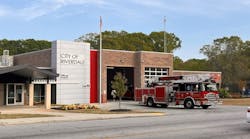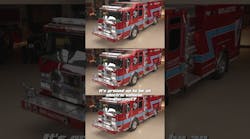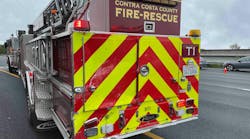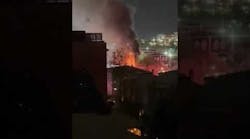In recent years, the U.S. Fire Administration (USFA), fire service organizations and local fire departments have increased their efforts to reduce the number of firefighter injuries and line-of-duty deaths. The issue is all over websites, and you can't go to any conference, seminar or other forum intended for learning and not hear somebody conducting a session on this subject — and that's exactly the way it should be.
As more emphasis has been placed on firefighter safety, we have learned a great deal about the role of leadership in the overall safety equation. Therefore, a lot of the safety training today focuses on decision-makers — those who are assigned to be in charge during emergency incidents. It's been an uphill climb, but most would agree that progress is being made, at least as it relates to awareness. Then something happens that just leaves you shaking your head and wondering about the level of common sense present in some of the people who claim to be responsible for the safety of the public and in command of first responders. Sometimes, the politics of rank can inappropriately impact those who are in positions to make critical decisions at potentially hazardous incidents.
In a midwestern city just a few weeks ago, there was a bomb threat at City Hall. I'll share the story with you just as it was related to me. The threat was received during the day. City employees and members of the public were in the building when the threat came in. The fire department dispatched an engine company to the scene with a staffing level of four personnel. Upon arrival, it is reported, the city public safety director, whose office is in the facility involved, ordered the company officer to use the fire crew to search the exterior of the building and the roof in an effort to find a bomb.
The company officer refused, and advised the public safety director that the fire department personnel were not trained to do such a thing and that those actions could put the firefighters, the public and city employees in harm's way if a bomb were to detonate. The officer also suggested that the building be evacuated and that properly trained and equipped public safety personnel be brought to the scene to conduct a search for an explosive device, and if one was found, to safely and professionally deal with the situation. At that point, the public safety director relieved the company officer of his command.
As this crazy story continues, the public safety director then ordered the engine driver to do the same thing he had instructed the company officer to do. The driver refused, for the same reasons, and was also relieved of his duties by the director. The director has reportedly ordered an internal investigation into the actions of the company officer and the driver with the intent of bringing disciplinary action against them for insubordination. It's going to be interesting to see how stupid this gets in the end.
We all know the politics of rank and how it can work its way into the chain of command. However, there are decisions that are better left to people who are trained, equipped and inclined to handle potentially dangerous situations appropriately. Whether or not a bomb was present or detonated is not the most important factor in justifying your decisions after an incident is over. It's whether the incident was commanded in a way that secured the life safety of all involved while the presence of a bomb was determined — and then, if one were found, the device disposed of without harm to people or property (if possible). This public safety director had no business being in charge of this situation, and his ignorance trumped the safety of all involved. Failing to secure the life safety of the people in City Hall, then planning to use bomb-sniffing firefighters to find an explosive device are outrageous decisions. If anybody should be facing an investigation and potential disciplinary action, it's him — but the politics of rank will probably prevent that from happening.
DENNIS COMPTON, a Firehouse® contributing editor, is a well-known speaker and the author of several books, including the When in Doubt, Lead series. He is also co-editor of the current edition of the ICMA textbook Managing Fire and Rescue Services. Compton was the fire chief in Mesa, AZ, for five years and assistant fire chief in Phoenix, AZ, where he served for 27 years. Compton is the past chair of the Executive Board of the International Fire Service Training Association (IFSTA) and past chair of the Congressional Fire Services Institute's National Advisory Committee. He is also chairman of the National Fallen Firefighters Foundation Board of Directors and the chairman of the Home Safety Council Board of Directors.





